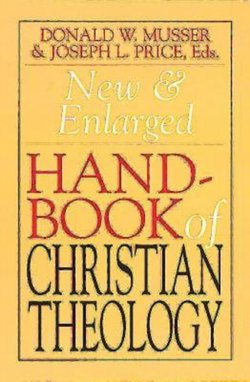Читать книгу New & Enlarged Handbook of Christian Theology - Donald W. Musser - Страница 19
На сайте Литреса книга снята с продажи.
ОглавлениеAPOLOGETICS
From time to time a representative of a given religion is invited (and occasionally required) to speak as an advocate or defender of the representative’s faith in a public forum. The occasion may arise as a result of a clash of religious options that a particular group wishes to resolve or as a result of a new philosophical insight that seems at odds with an earlier religious consensus. In recent times, the occasion has often been the result of a new scientific theory or a sociological change that calls into question the prevailing religious view. And postmodern critics, who sense the failure of various modern nontheistic worldviews, have fostered a reexamination of religion as a part of a more comprehensive worldview.
Whatever the case, the rational advocate or defender of the faith is called an “apologist.” Apologetics is the field of study that examines the methods employed by the apologist. The following historical and modern examples illustrate apologetic methods that have been used.
In the New Testament, the book of Hebrews is an early example of an apology that addresses the problem of choosing between religious options. It seems to be addressed to persons being forced to choose between Christianity and Judaism although the first Christians understood themselves to be both Jews and Christians. The writer maintains that the essential truth of Judaism has found its fulfillment in Christianity; so the best way to be a true Jew is to choose Christianity and depart from Judaism.
When they encountered the thought world of Greek philosophy, early Christian theologians learned to use Greek concepts in order to interpret the faith for an audience familiar with Greek terminology. The practice of appropriating philosophical language in defense of the faith reached a climax in the works of Thomas Aquinas (1225–1274). Using Aristotelian logic to advocate an ultimate cause of all existing things, he then identified God as this ultimate cause and used the imagery of the Christian religion to give definition to the God thus identified.
The ascendancy of the theory of evolution in the nineteenth century provides a prime example of a scientific theory that caused a crisis of faith. The discovery of a developmental potential within nature itself made the hypothesis of God as the source of nature’s apparent organization seem unnecessary. The first response of a number of Christians was to question the credibility of science in ways that often undermined their own credibility. Some theologians embraced the theory of evolution creatively. Teilhard de Chardin celebrated the developing structure of nature and saw the love of God as the dynamic source that makes evolution possible. Others devised similar views of God as guiding evolution.
The emergence of psychology as a field of scientific study exemplifies another crisis for faith. Sigmund Freud (1856–1939) devised an explanation of religion as a human invention that addresses deep psychological needs for security. Paul Tillich, on the other hand, building on Freudian insights, discovered in psychology the existential need to be committed to an ultimate concern. He argued that the courage of faith was necessary to make an authentic (and thus salvific) commitment to the only “true” ultimate, which is God.
Another great theologian of the twentieth century, Karl Barth avoided apologetics altogether. He regarded faith as pre-rational in the sense that one could not reason to a position of faith. Rather one must be moved to such a position by the power of the Word of God through the medium of Scripture or preaching. Therefore, any effort of human logic or argumentation was of no value in promoting authentic faith. Generally Barth’s approach seems dogmatic and arrogant, for the modern world citizen experiences too many competing worldviews and sociological shifts to embrace any one option precritically.
Sociological changes also give rise to apologetic reflection. Changing male and female roles in modern society are one example of this phenomenon. The organizational structures of many religions are decidedly paternalistic, The feminist movement reflects a sensitivity to social structures that limit women to secondary roles and incomplete fulfillment of potential. Feminists urge a reformation of such structures in order to provide equality for women; and if such reform is not possible, they often advocate rejection of traditional religion in favor of alternative religions. The apologist seeks to emphasize a liberating heritage within religious structures as a basis for advocating new opportunities for women or runs the risk of alienating increasing numbers of women.
Advocates of a postmodern view indicate that modern worldviews that looked to science and technology to solve all human problems have become bankrupt because science and technology have generated as many problems as they have solved and have given rise to some particularly threatening realities such as nuclear weapons and ecological disasters. In this milieu there is a call for a more comprehensive worldview. One element of the emerging new worldview is the desire to recognize a transcendent or spiritual dimension to reality. This desire has prompted a renewed interest in religious dialogue and a new chapter in the history of apologetics.
F. WILLIAM RATLIFF
Bibliography
Diogenes Allen, Christian Belief in a Postmodern World.
Avery Dulles, A History of Apologetics.
Jerry H. Gill, Faith in Dialogue.
C. S. Lewis, Mere Christianity.
D. Elton Trueblood, A Place to Stand.
Cross-Reference: Culture, Epistemology, Feminist Theology, Hermeneutics, Philosophical Theology, Postmodern Theology.
APOSTASY (See HERESY.)
